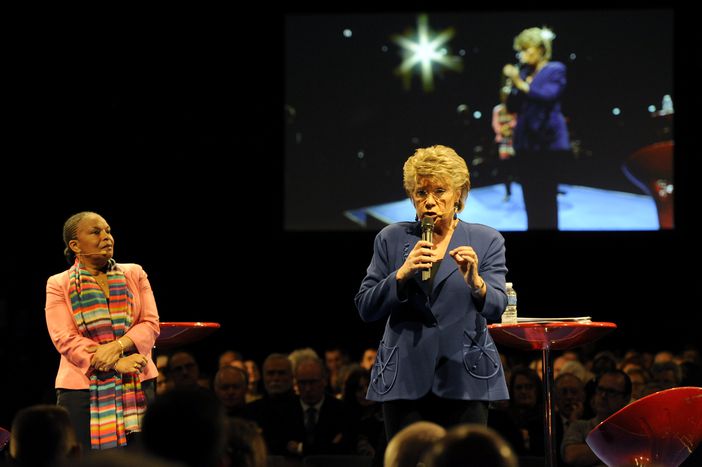
Elections: The EU Arms its citizens
Published on
Translation by:
 Ronnie Branson Jnr
Ronnie Branson Jnr
The series of Citizens' Dialogues launched by Viviane Reding will come to a close in February. The Commission hopes they will encourage debate prior to the European elections. That remains to be seen.
It's a cold, cold afternoon on 14th November in Marseille, yet some 200 people form a queue outside of the Docks des Suds, a concert hall in the south of the city. “We’re here to see Viviane Reding,” exclaims local resident Geneviève Bonset-Doutée. “It’s a chance for us to question her on issues that are important to us, such as the preparation for the European elections, or the nomination of the future president of the Commission,” adds by-stander Annie Giraud-Héraud.
The European Commissioner for Citizenship, accompanied by the French Minister of Justice Christiane Taubira, spent two-and-a-half hours responding directly to questions from the citizens gathered in the hall, questions such as: “Who at the Commission is responsible for austerity politics?”, “How is it that those responsible for the crisis aren't in prison?”, and “What is the EU doing to prevent the misappropriation of humanitarian aide in Africa?”
‘At best, a good exercise in communication’
The debate is not the first of its kind but rather the 37th visit since September 2012 that the Commissioner has paid to an EU city, in order to meet and discuss with local citizens. The dialogues, organised as part of the European Year of Citizens 2013, are intended to offer Europeans the opportunity to voice their opinions directly.
Experts are not all in agreement as to the usefulness of the dialogues. “It is unlikely that these events will be enough to re-legitimise the European Union, or to give a real sense of citizenship to its citizens,” says François Foret, a lecturer in political science at the Institut d’études européennes in Brussels. In the lecturer’s opinion, the fact that the debates allow only questions to the Commissioner means that they are ‘at best, a good exercise in communication’ .
Within the European Movement the gesture is appreciated but there is regret that the dialogues did not occur on a more regular basis. “They could just as well have been extended to include all commissioners - citizens need to voice their opinions on many issues affecting their daily or professional lives,” insists Yannick Hoppe, vice-president of the French branch.
Pascale Joanin, Director General of the Robert Schuman Foundation, sees the brighter side: “It’s a great initiative! We criticise European institutions for being too distant from their citizens but with these dialogues they demonstrate that they are close, and ready to talk.” She hopes for further debates in the future, with participants other than members of the European Commission.
Unfortunately, the dialogues are coming to an end, with only a further eight taking place between now and next March. A report on the debates will be written in late winter, to be submitted to senior European politicians ahead of the European elections. “We’ve done our part, now it’s up to the political parties to do theirs”, said Viviane Reding. “But I think these debates will continue, in a different form: we’ve started a movement that can't be stopped.”
Translated from élections : l'UE donne des armes aux citoyens


